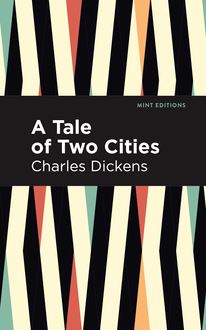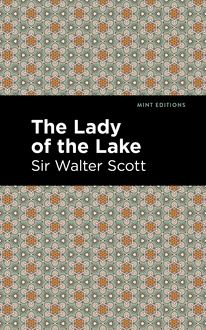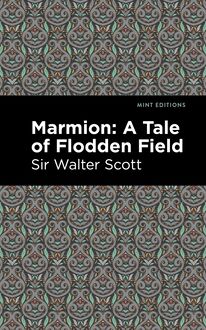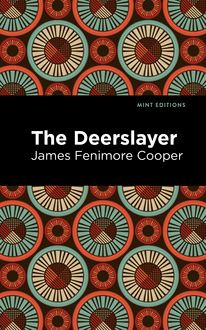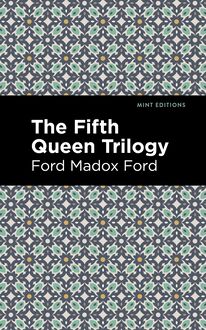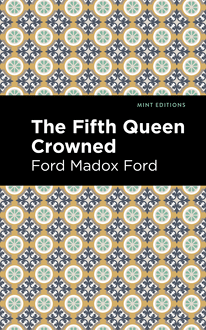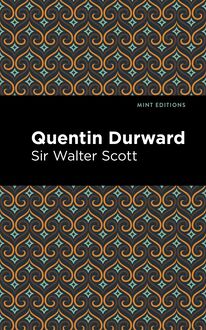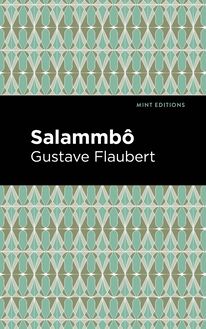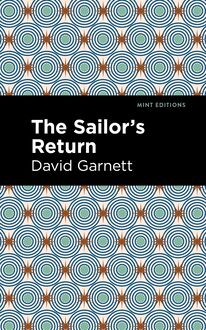-
 Univers
Univers
-
 Ebooks
Ebooks
-
 Livres audio
Livres audio
-
 Presse
Presse
-
 Podcasts
Podcasts
-
 BD
BD
-
 Documents
Documents
-
- Cours
- Révisions
- Ressources pédagogiques
- Sciences de l’éducation
- Manuels scolaires
- Langues
- Travaux de classe
- Annales de BEP
- Etudes supérieures
- Maternelle et primaire
- Fiches de lecture
- Orientation scolaire
- Méthodologie
- Corrigés de devoir
- Annales d’examens et concours
- Annales du bac
- Annales du brevet
- Rapports de stage
La lecture à portée de main
Vous pourrez modifier la taille du texte de cet ouvrage
Découvre YouScribe en t'inscrivant gratuitement
Je m'inscrisDécouvre YouScribe en t'inscrivant gratuitement
Je m'inscrisEn savoir plus
Vous pourrez modifier la taille du texte de cet ouvrage
En savoir plus

Description
Members of Montrose’s army, Allan M'Aulay and Earl of Menteith, navigate the perils of war after falling for a young woman with a hidden heritage. The men go on a physical and emotional journey that will put their loyalty to the test. Allan M'Aulay and Earl of Menteith are royalists in favor of Montrose. Allan has a personal vendetta against the MacEagh clan, who previously brought harm and death to his family. Both Allan and Menteith are in love with Annot Lyle, a young woman who grew up as an orphan. She has no memory of her parents or life prior to being captured as a child. When Annot’s parentage is revealed, the stakes of love and war come to ahead. A Legend of Montrose is a fascinating novel that dives into the passion behind the politics. Sir Walter Scott delivers action, adventure, humor and romance in one compelling narrative. It’s an engaging tale led by bold characters and Scott’s signature prose. With an eye-catching new cover, and professionally typeset manuscript, this edition of A Legend of Montrose is both modern and readable.
Sujets
Informations
| Publié par | Mint Editions |
| Date de parution | 14 mai 2021 |
| Nombre de lectures | 0 |
| EAN13 | 9781513285481 |
| Langue | English |
| Poids de l'ouvrage | 3 Mo |
Informations légales : prix de location à la page 0,0500€. Cette information est donnée uniquement à titre indicatif conformément à la législation en vigueur.
Extrait
A Legend of Montrose
Sir Walter Scott
A Legend of Montrose was first published in 1819.
This edition published by Mint Editions 2021.
ISBN 9781513280462 | E-ISBN 9781513285481
Published by Mint Editions®
minteditionbooks .com
Publishing Director: Jennifer Newens
Design & Production: Rachel Lopez Metzger
Project Manager: Micaela Clark
Typesetting: Westchester Publishing Services
C ONTENTS I. I NTRODUCTION TO A L EGEND OF M ONTROSE II. I NTRODUCTION (S UPPLEMENT ) III. A L EGEND OF M ONTROSE I II III IV V VI VII VIII IX X XI XII XIII XIV XV XVI XVII XVIII XIX XX XXI XXII XXIII
I. I NTRODUCTION TO A L EGEND OF M ONTROSE
T he Legend of Montrose was written chiefly with a view to place before the reader the melancholy fate of John Lord Kilpont, eldest son of William Earl of Airth and Menteith, and the singular circumstances attending the birth and history of James Stewart of Ardvoirlich, by whose hand the unfortunate nobleman fell.
Our subject leads us to talk of deadly feuds, and we must begin with one still more ancient than that to which our story relates. During the reign of James IV, a great feud between the powerful families of Drummond and Murray divided Perthshire. The former, being the most numerous and powerful, cooped up eight score of the Murrays in the kirk of Monivaird, and set fire to it. The wives and the children of the ill-fated men, who had also found shelter in the church, perished by the same conflagration. One man, named David Murray, escaped by the humanity of one of the Drummonds, who received him in his arms as he leaped from amongst the flames. As King James IV ruled with more activity than most of his predecessors, this cruel deed was severely revenged, and several of the perpetrators were beheaded at Stirling. In consequence of the prosecution against his clan, the Drummond by whose assistance David Murray had escaped, fled to Ireland, until, by means of the person whose life he had saved, he was permitted to return to Scotland, where he and his descendants were distinguished by the name of Drummond-Eirinich, or Ernoch, that is, Drummond of Ireland; and the same title was bestowed on their estate.
The Drummond-ernoch of James the Sixth’s time was a king’s forester in the forest of Glenartney, and chanced to be employed there in search of venison about the year 1588, or early in 1589. This forest was adjacent to the chief haunts of the MacGregors, or a particular race of them, known by the title of MacEagh, or Children of the Mist. They considered the forester’s hunting in their vicinity as an aggression, or perhaps they had him at feud, for the apprehension or slaughter of some of their own name, or for some similar reason. This tribe of MacGregors were outlawed and persecuted, as the reader may see in the Introduction to R OB R OY ; and every man’s hand being against them, their hand was of course directed against every man. In short, they surprised and slew Drummond-ernoch, cut off his head, and carried it with them, wrapt in the corner of one of their plaids.
In the full exultation of vengeance, they stopped at the house of Ardvoirlich and demanded refreshment, which the lady, a sister of the murdered Drummond-ernoch (her husband being absent), was afraid or unwilling to refuse. She caused bread and cheese to be placed before them, and gave directions for more substantial refreshments to be prepared. While she was absent with this hospitable intention, the barbarians placed the head of her brother on the table, filling the mouth with bread and cheese, and bidding him eat, for many a merry meal he had eaten in that house.
The poor woman returning, and beholding this dreadful sight, shrieked aloud, and fled into the woods, where, as described in the romance, she roamed a raving maniac, and for some time secreted herself from all living society. Some remaining instinctive feeling brought her at length to steal a glance from a distance at the maidens while they milked the cows, which being observed, her husband, Ardvoirlich, had her conveyed back to her home, and detained her there till she gave birth to a child, of whom she had been pregnant; after which she was observed gradually to recover her mental faculties.
Meanwhile the outlaws had carried to the utmost their insults against the regal authority, which indeed, as exercised, they had little reason for respecting. They bore the same bloody trophy, which they had so savagely exhibited to the lady of Ardvoirlich, into the old church of Balquidder, nearly in the centre of their country, where the Laird of MacGregor and all his clan being convened for the purpose, laid their hands successively on the dead man’s head, and swore, in heathenish and barbarous manner, to defend the author of the deed. This fierce and vindictive combination gave the author’s late and lamented friend, Sir Alexander Boswell, Bart., subject for a spirited poem, entitled “Clan-Alpin’s Vow,” which was printed, but not, I believe, published, in 1811.
The fact is ascertained by a proclamation from the Privy Council, dated 4th February, 1589, directing letters of fire and sword against the MacGregors. This fearful commission was executed with uncommon fury. The late excellent John Buchanan of Cambusmore showed the author some correspondence between his ancestor, the Laird of Buchanan, and Lord Drummond, about sweeping certain valleys with their followers, on a fixed time and rendezvous, and “taking sweet revenge for the death of their cousin, Drummond-ernoch.” In spite of all, however, that could be done, the devoted tribe of MacGregor still bred up survivors to sustain and to inflict new cruelties and injuries. 1
Meanwhile Young James Stewart of Ardvoirlich grew up to manhood uncommonly tall, strong, and active, with such power in the grasp of his hand in particular, as could force the blood from beneath the nails of the persons who contended with him in this feat of strength. His temper was moody, fierce, and irascible; yet he must have had some ostensible good qualities, as he was greatly beloved by Lord Kilpont, the eldest son of the Earl of Airth and Menteith.
This gallant young nobleman joined Montrose in the setting up his standard in 1644, just before the decisive battle at Tippermuir, on the 1st September in that year. At that time, Stewart of Ardvoirlich shared the confidence of the young Lord by day, and his bed by night, when, about four or five days after the battle, Ardvoirlich, either from a fit of sudden fury or deep malice long entertained against his unsuspecting friend, stabbed Lord Kilpont to the heart, and escaped from the camp of Montrose, having killed a sentinel who attempted to detain him. Bishop Guthrie gives us a reason for this villainous action, that Lord Kilpont had rejected with abhorrence a proposal of Ardvoirlich to assassinate Montrose. But it does not appear that there is any authority for this charge, which rests on mere suspicion. Ardvoirlich, the assassin, certainly did fly to the Covenanters, and was employed and promoted by them. He obtained a pardon for the slaughter of Lord Kilpont, confirmed by Parliament in 1634, and was made Major of Argyle’s regiment in 1648. Such are the facts of the tale here given as a Legend of Montrose’s wars. The reader will find they are considerably altered in the fictitious narrative.
The author has endeavoured to enliven the tragedy of the tale by the introduction of a personage proper to the time and country. In this he has been held by excellent judges to have been in some degree successful. The contempt of commerce entertained by young men having some pretence to gentility, the poverty of the country of Scotland, the national disposition to wandering and to adventure, all conduced to lead the Scots abroad into the military service of countries which were at war with each other. They were distinguished on the Continent by their bravery; but in adopting the trade of mercenary soldiers, they necessarily injured their national character. The tincture of learning, which most of them possessed, degenerated into pedantry; their good breeding became mere ceremonial; their fear of dishonour no longer kept them aloof from that which was really unworthy, but was made to depend on certain punctilious observances totally apart from that which was in itself deserving of praise. A cavalier of honour, in search of his fortune, might, for example, change his service as he would his shirt, fight, like the doughty Captain Dalgetty, in one cause after another, without regard to the justice of the quarrel, and might plunder the peasantry subjected to him by the fate of war with the most unrelenting rapacity; but he must beware how he sustained the slightest reproach, even from a clergyman, if it had regard to neglect on the score of duty. The following occurrence will prove the truth of what I mean:—
“Here I must not forget the memory of one preacher, Master William Forbesse, a preacher for souldiers, yea, and a captaine in neede to leade souldiers on a good occasion, being full of courage, with discretion and good conduct, beyond some captaines I have knowne, that were not so capable as he. At this time he not onely prayed for us, but went on with us, to remarke, as I thinke, men’s carriage; and having found a sergeant neglecting his dutie and his honour at such a time (whose name I will not expresse), having chidden him, did promise to reveale him unto me, as he did after their service. The sergeant being called before me, and accused, did deny his accusation, alleaging, if he were no pasteur that had alleaged it, he would not lie under the injury, The preacher offered to fight with him, (in proof) that it was truth he had spoken of him; whereupon I cashiered the sergeant, and gave his place to a worthier, called Mungo Gray, a gentleman of good worth, and of much courage. The sergeant being cashiered, never called Master William to account, for which he was evill tho
-
 Univers
Univers
-
 Ebooks
Ebooks
-
 Livres audio
Livres audio
-
 Presse
Presse
-
 Podcasts
Podcasts
-
 BD
BD
-
 Documents
Documents
-
Jeunesse
-
Littérature
-
Ressources professionnelles
-
Santé et bien-être
-
Savoirs
-
Education
-
Loisirs et hobbies
-
Art, musique et cinéma
-
Actualité et débat de société
-
Jeunesse
-
Littérature
-
Ressources professionnelles
-
Santé et bien-être
-
Savoirs
-
Education
-
Loisirs et hobbies
-
Art, musique et cinéma
-
Actualité et débat de société
-
Actualités
-
Lifestyle
-
Presse jeunesse
-
Presse professionnelle
-
Pratique
-
Presse sportive
-
Presse internationale
-
Culture & Médias
-
Action et Aventures
-
Science-fiction et Fantasy
-
Société
-
Jeunesse
-
Littérature
-
Ressources professionnelles
-
Santé et bien-être
-
Savoirs
-
Education
-
Loisirs et hobbies
-
Art, musique et cinéma
-
Actualité et débat de société
- Cours
- Révisions
- Ressources pédagogiques
- Sciences de l’éducation
- Manuels scolaires
- Langues
- Travaux de classe
- Annales de BEP
- Etudes supérieures
- Maternelle et primaire
- Fiches de lecture
- Orientation scolaire
- Méthodologie
- Corrigés de devoir
- Annales d’examens et concours
- Annales du bac
- Annales du brevet
- Rapports de stage

